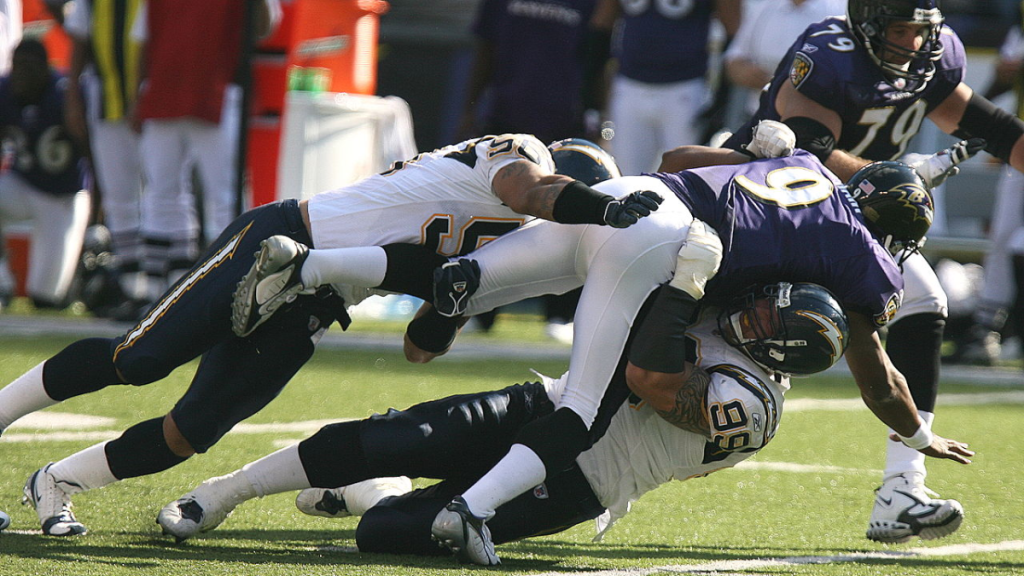Fall is here, which means it is time for fans to observe sacred weekend rituals of watching armored behemoths destroy themselves and one another on the football field while gorging themselves on creative and delicious combinations of sugar, fat, salt, and alcohol.
While you crack open beer number four and help yourself to another serving of extra-zesty chili cheese dip, you might pause for a second and wonder about the rationality of doing something as risky and self-destructive as playing football. It gnaws at your conscience: couldn’t we—shouldn’t we—make this game safer?
Would we improve player safety by outfitting them with more and better safety gear? Possibly, but not necessarily. In fact, we might make football more dangerous by loading people up with more gear due to something called the Peltzman Effect.
Named for the economist Sam Peltzman who first studied the effects of mandatory seatbelt laws on overall mortality, the Peltzman Effect is the simple insight that people do more of what gets cheaper and less of what gets more expensive. Better safety equipment like seatbelts and airbags make a car accident at 35 miles per hour less dangerous. Mandating them reduces the cost of reckless driving by making it safer, so people drive faster, more aggressively, and less attentively. This implies that injury-related well-being might not change as mandatory safety equipment gives people incentives to take more risks.
The same principles apply to football. More mandatory safety equipment means increasing the amount of force needed to injure a player. This added safety actually gives players an incentive to play more recklessly.
If two people wearing street clothes or soccer uniforms were to ram into one another at full speed, they could be virtually guaranteed to injure themselves. Covering them in body armor from head to toe makes such violent collisions safer—and it gives them incentives to have more of them.
Of course, they do it because we are willing to pay to watch them. Such self-destructive behavior is madness, I think.



